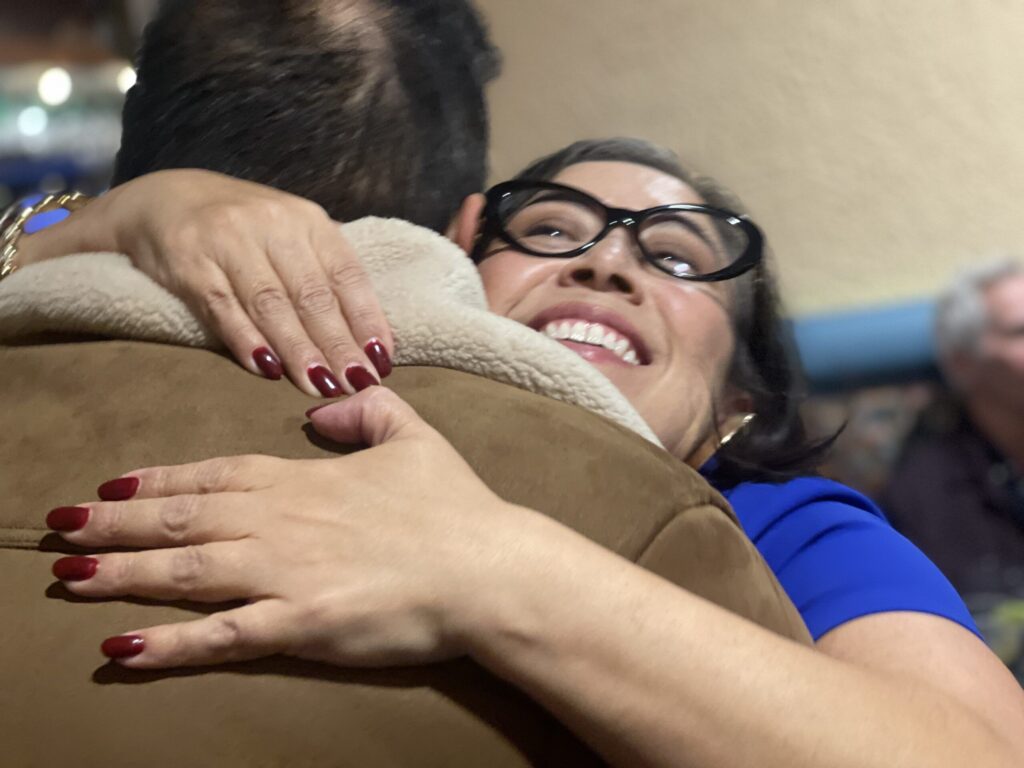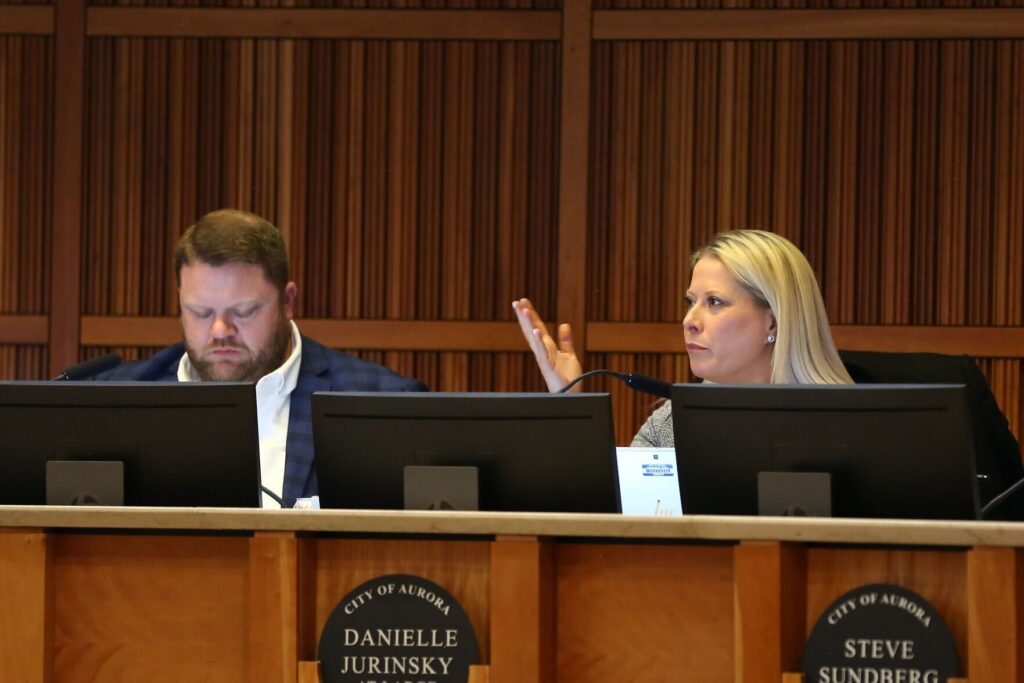Uncivil discourse: Tips from experts to avoid verbal venom and poisoned posts
As the Nov. 5 presidential election draws closer, what appears to be another season of verbal venom has returned.
Though the attempted assignation of former President Donald Trump on July 13 led to public outcry for more harmonious interplay between this year’s presidential candidates and allies — which initially resulted in some egregious ads being removed — zingers, jibes and name-calling have ramped up again.
Vomitous language resumed shortly after President Joe Biden’s abrupt withdrawal from the race on July 21 and Vice President Kamala Harris became poised to slide in as the Democratic contender.
In her first presidential campaign rally two days after Biden announced he was no longer the incumbent candidate, Harris likened Trump to “predators who abused women, fraudsters who ripped off consumers, cheaters who broke the rules for their own gain,” the likes of whom she said she “took on” while working as a prosecuting attorney in California.
In a rally last week, Trump called Harris “a lying, radical, left lunatic.”
While political divisiveness has made uncivil discourse commonplace, many people believe that society has lost the ability to speak rationally, calmly and respectfully with anyone who disagrees with their views.
Visible discord shows up at home, school, work or in public and can cause physical and mental anguish for participants and observers.
But experts say there are ways to keep spoken and written conversations from escalating and becoming hurtful — yet still stand by personal beliefs and thoughts.
“Everyone’s allowed to have their own perspective and opinion,” said Katie Blickenderfer, chief clinical officer at Diversus Health, the largest behavioral health care provider in El Paso, Park and Teller counties.
“It’s setting your mindset from the beginning of the discussion that you need to have an open mind, engage in active listening and that it’s OK for people to have a difference of opinion,” she said. “That’s what makes the world work.”
Vitriolic dialogue has characterized politics since the formation of the nation, but the current landscape began in the late 1990s, during the presidential bid between George W. Bush and Al Gore, said Gary Schneeberger, the longtime assistant for media relations for Focus on the Family President Jim Daly. The conservative Christian communications and media organization also has a political advocacy arm.
That period marked the onset of red and blue — or Republican- and Democrat-leaning states — with an “us versus them” mentality, he said. At the same time, social media also came into being.
“Social media helps promulgate this instability because our interactions are not face-to-face, they’re keyboard-to-keyboard,” Schneeberger said. “We’ll say dismissive, derogatory things to people online that we would never say in person.
“We need to holster our hostility and embrace our humanity and that of those with whom we are engaged in debate.”
Understanding where others are coming from can diffuse heated conversations and give way to clarity and empathy, said Tamara Herl, a changemaker coach who runs Wild Divine Coaching and Retreats in Cascade.
Speaking up about things that bother you or that you think can be done better can produce change, but the old way of defending an issue no matter what the cost — even if it violates other people’s rights or is unkind — isn’t the best approach, she said.
While conducting a training last week for teens titled, “Activism Without Divisiveness,” Herl said people often get caught up in an attitude of “my way is right, yours is wrong.”
Then it’s easy to fall into trash talk and bad behavior, particularly when people are passionate about an issue, she said.
However, “You can learn to take compassionate action in a way that respects the rights and dignity of other people,” Herl said. “The trick is to find the common ground.”
That can be accomplished by getting to know a little bit about someone you’re arguing with, finding out their views and identifying an interest or opinion you share.
“People are afraid if I don’t stand up for my rights in a strong or aggressive way, people will walk all over me,” Herl said. “It’s never OK for someone else’s right to be violated.”
Setting personal boundaries for what’s acceptable to you is necessary, said Blickenderfer of Diversus Health.
“It’s OK to say ‘we need to stop this discussion, it’s not productive,’” she said.
Limiting the amount of time spent debating a topic, researching or scrolling on social media also is valuable.
“What we don’t want to do is spend so much time on something that we get obsessed,” Blickenderfer said.
Overconsumption of social media or traditional media can cause agitation, anxiety and discomfort, said Geremy Keeton, senior director of counseling services at Focus on the Family.
“I’m doom-scrolling,” or “I can’t look away,” or “It’s causing me to ruminate or think disastrously,” clients will tell him.
“If you’re constantly on media, it’s like eating McDonald’s for every meal for your brain; our brain needs other forms of input and healthier rhythms,” said Keeton, a licensed marriage and family therapist.
“I talk with clients about filtering your input, making sure you’re using media appropriately, rather than media using you,” he said.
Having loud, chaotic exchanges also can contribute to mental imbalance as well as physical symptoms including tightness in the chest, stomach discomfort or headaches, Herl said.
While it can be hard to draw a direct correlation, Blickenderfer said Diversus Health continues to see more need for treatment for anxiety, depression, substance use and suicidal tendencies.
“It’s important to be connected to family and friends,” she said. “If you know you have differing beliefs, it’s something you need to be mindful about and think about at what level do you want to engage in conversation and where you have connection — so relationships aren’t ruined over differing beliefs.”
More tips to keep in mind
A model created by family therapist Dick Schwartz supposes that every person wants to do good and make a difference in the world and therefore is creative, compassionate, caring, calm, curious, connected, confident and seeks clarity. It’s what Schwartz, who created the Internal Family Systems branch of therapy, calls “the eight qualities of the self.”
If people are able to tap into these characteristics when they’re upset, their fears recede, and they become less combative and more perceptive, Herl said.
For example, curiosity can be applied when arguing with a parent about staying out late or disagreeing with a coworker about how a project should be handled. Ask questions to learn why the parent is so adamant about a curfew (mom is concerned about her kid hanging out with other kids who have bad habits) or why a co-worker wants to do something a certain way (let’s try a new approach that we haven’t used before).
Parents should model appropriate behavior for their children at home and in public, Keeton of Focus on the Family said.
“There’s a lot of negative things out there, but look at what’s in your control: How am I going to act with my family, what am I going to model? Focus on being calm, collected and connected,” he said.
Ideological friction between immediate or extended family members can be teachable moments, Keeton said. Being calm refers to making self-control and self-responsibility a priority to maintain a constructive, not destructive, demeanor.
“I like the phrase that people don’t want to know what you know until they know how much you care,” he said. “People won’t remember what you told them, but they’ll remember how you made them feel.”
Being collected means acting with poise, being who you want to be based on your values and not reacting to inflammatory provocation, Keeton said.
Keeping in mind the level of connectedness also contributes to speaking and acting in a civil manner, he said.
“Maybe it’s a coworker I only see once a week and it’s me realizing not everyone needs to be 100% convicted of my point,” he said. “I care about the issue, yet I also care about the nature of our relationship. At times, I can share my point, listen to theirs and leave it.”
Focus on the Family’s counseling center handles about 1,200 phone consultations each each month, according to Keeton. Problems with marriages and conflicts with young adults are the top issues.
A moral compass often helps guide people in what they should do in certain circumstances, Keeton added.
“We need to be ever committed to make correct, right and healthy decisions and not compromise our principles, but we can do that without demagoguing or character assassinations,” he said. “We can be committed to having reasoned disagreements and strong positions and keep it to facts and where logic speaks over the personal putdowns and statements that don’t contain decorum.”
When people display changes in behavior, such as losing interest in things they like to do, or something’s out of line with how they feel or what they’re thinking — and if the symptoms are impacting their daily routine and relationships — it’s time to seek professional assistance, Blickenderfer said.
Diversus Health provides same-day assessments for people struggling with mental or behavioral health and access to a psychiatrist within seven days, she said.
Call 719-572-6100 or go to diversushealth.org.











